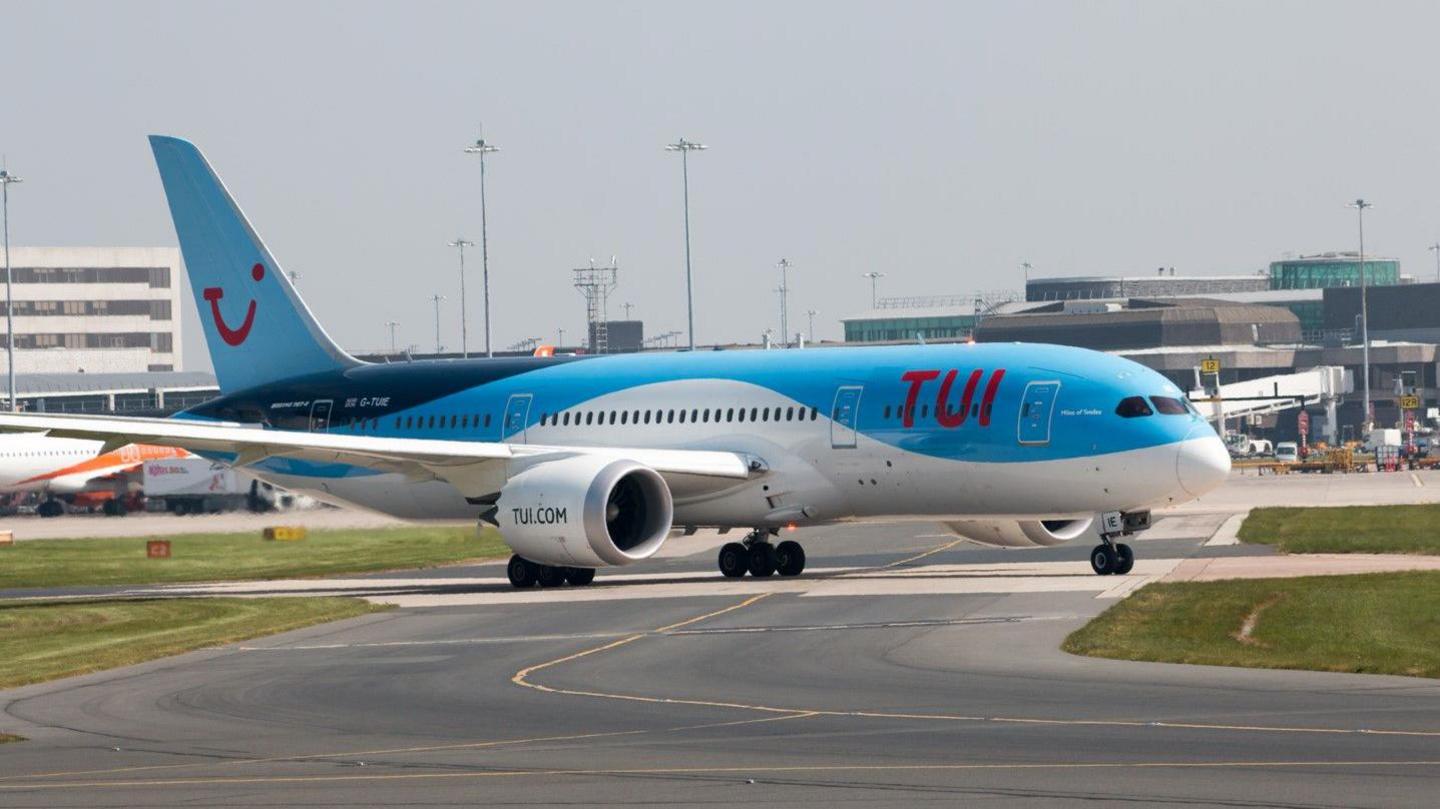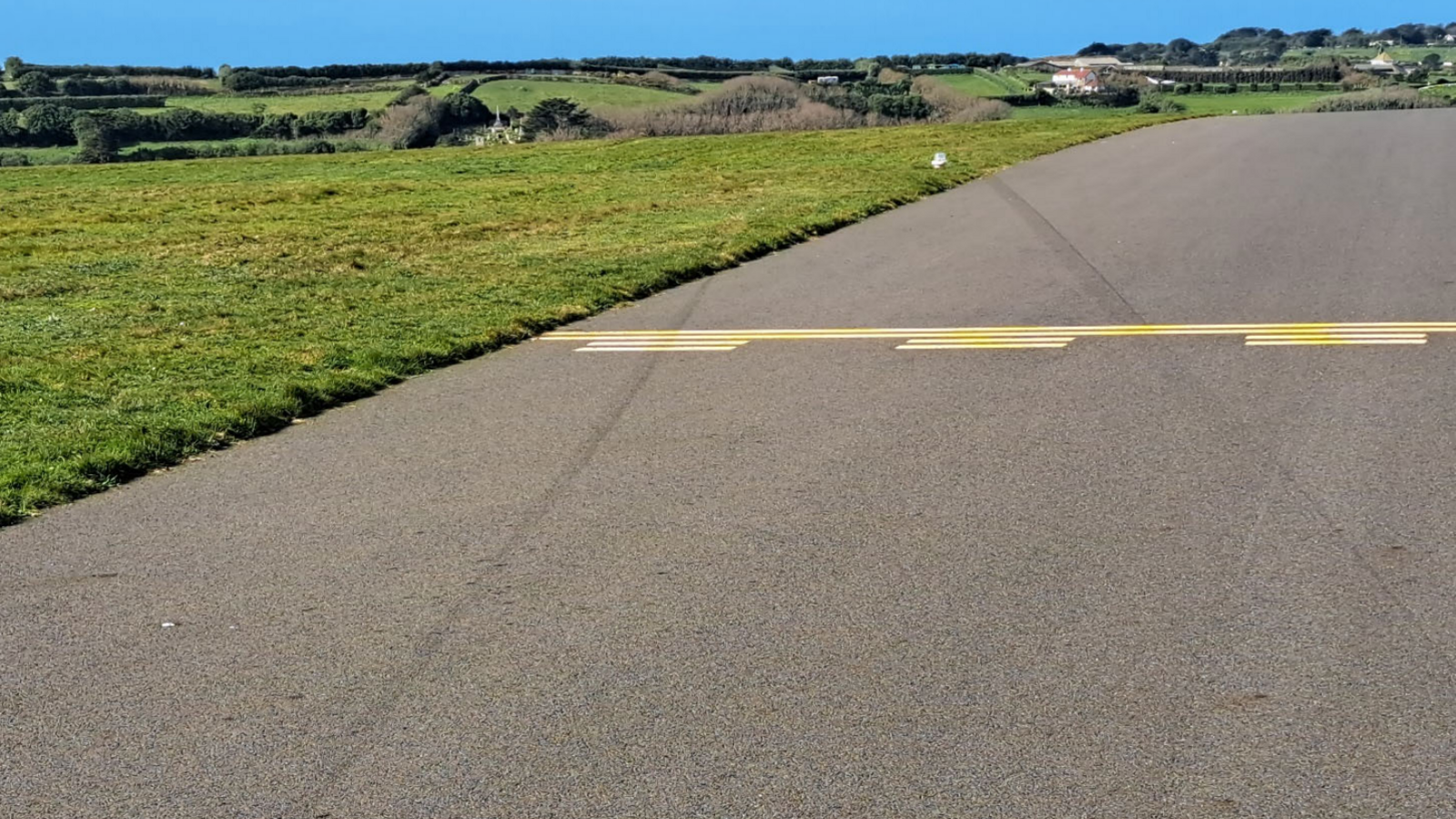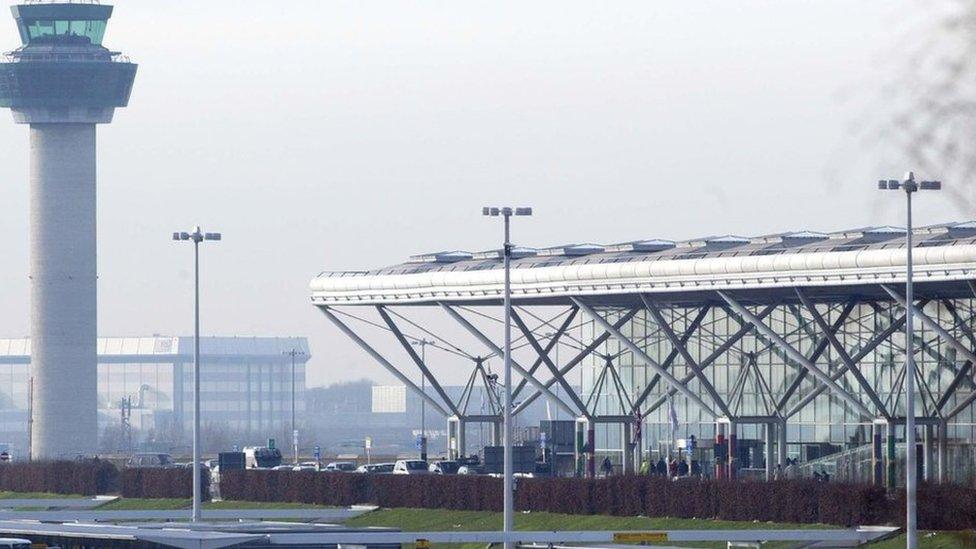Out-of-fuel plane made to wait to land - report

The TUI Boeing 787-8 originally planned to land at Manchester Airport
- Published
A passenger plane that was running dangerously low on fuel with 300 people on board was made to wait while another aircraft was given permission to land, a report has found
The Air Accident Investigation Branch (AAIB) described how the TUI Boeing 787 eventually landed at Birmingham, having been diverted from Manchester in high winds, and then turned away from East Midlands Airport.
Its first approach had to be abandoned because of high winds, meaning another plane was given priority to land.
The aircraft finally touched down with less than two-thirds of its planned minimum fuel level.
The aircraft was on an overnight flight across the Atlantic from Cancun, four days before Christmas 2023, with high winds forecast over northern England.
Extra fuel was loaded to account for the possibility of a diversion.
The flight should have landed at Manchester Airport, but after holding with seven others waiting for winds to subside, it was prevented from landing by bad weather.
A diversion to East Midlands Airport in Leicestershire was unsuccessful because there was no room for the plane, so it went on to Birmingham instead.
The first attempt there was aborted due to a windshear warning from the onboard equipment.
Then, despite the TUI flight declaring "Mayday, mayday, mayday fuel", another aircraft was cleared to land ahead of it, adding an extra 28 miles to its holding pattern.
The plane finally touched down with 1,250kg of fuel on board, compared to the calculated safe minimum of more than 1,900kg.
The 291 passengers and 10 crew were unhurt.
Internal investigations
Ahead of Thursday's AAIB report, both East Midlands and Birmingham Airports carried out their own investigations.
East Midlands found "the channels used to establish what the airport could accept had not resulted in a clear and effective understanding", and clarified its procedures.
Birmingham has since introduced a safety bulletin that emphasises the priority that must be given to aircraft in an emergency.
The AAIB concluded: "Safety action has been taken to clarify the process for determining and communicating airport capacity for diversions, and for the prioritisation of aircraft that have declared an emergency."
Get in touch
Tell us which stories we should cover in Birmingham and the Black Country
Follow BBC Birmingham on BBC Sounds, Facebook, external, X, external and Instagram, external.
- Published9 November 2023

- Published2 February 2023
